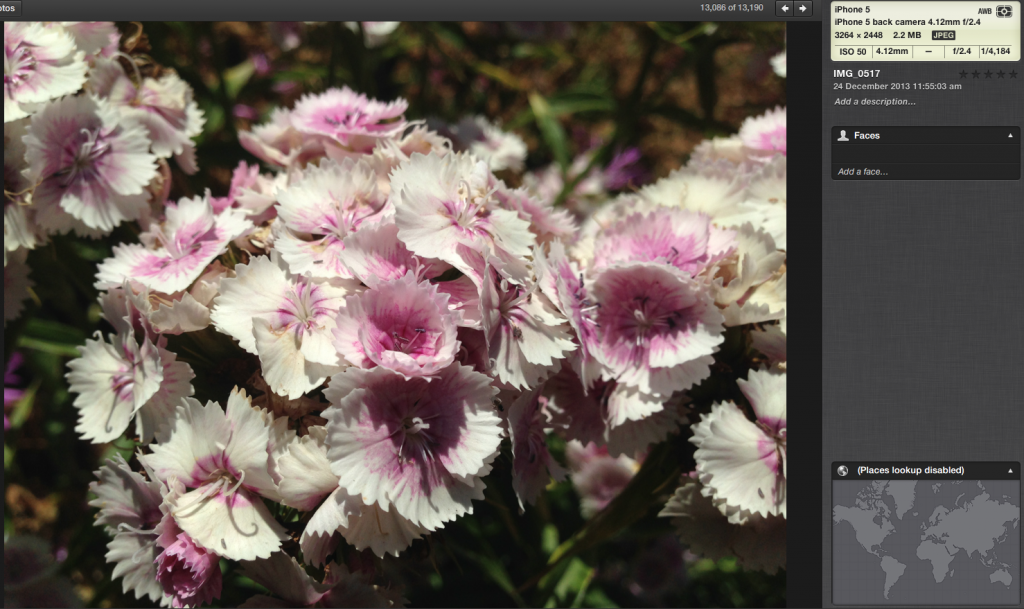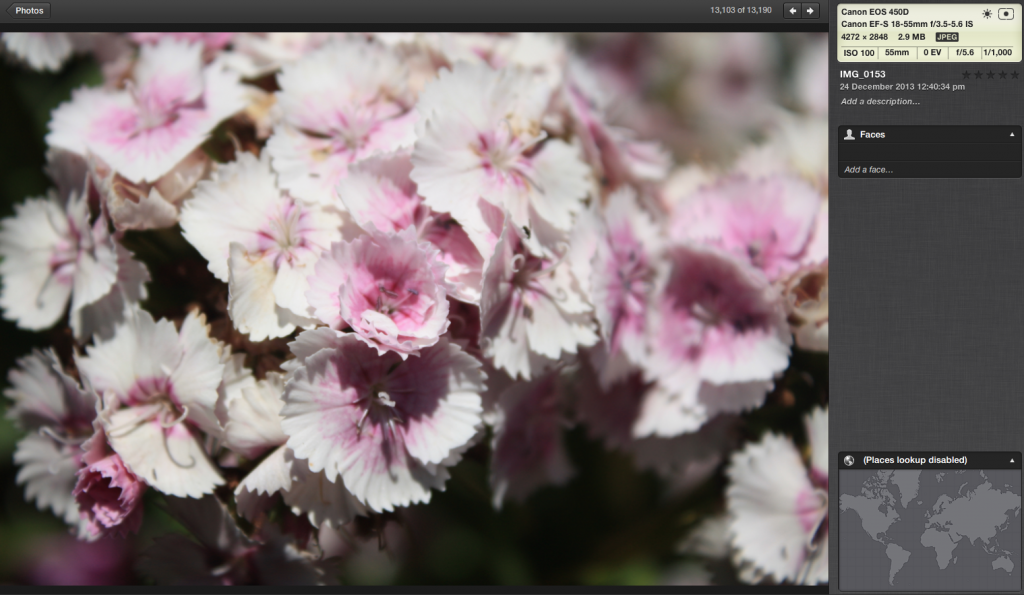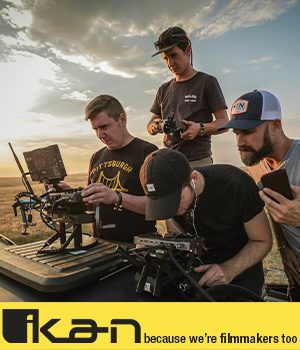- Forum
- General Discussion | Introductions | Off Topic Forum
- Photography General Discussion
- iPhone takes better photos than my DSLR
iPhone takes better photos than my DSLR
-
 Topic Author
Topic Author
- TrevJel
- Newbie
- Followers: 0
-
Points:
0
Post #324423
-

- garyrhook
- Oh Wise One
-
- Nikon D850, Nikon D750, Panasonic G7K
- Followers: 912
- Posts: 11103
-
Points:
67681
Post #324465
Mobile phone photos, in general, are of secondary quality to what can be produced by an SLR. IMO. The issue likely originates behind the camera. Perhaps a class is in order? Or just stick to the iPhone or a point and shoot.
-

- Roman Omell
- Photography Hooked
-
- Nkon D800
- Followers: 357
- Posts: 754
-
Points:
8959
Post #324471
-
 Topic Author
Topic Author
- TrevJel
- Newbie
- Followers: 0
-
Points:
0
Post #324481
garyrhook wrote: You provide no information about the model of DSLR, lens, image format, or post-processing, nor your skills as a photographer. The question can't be answered based on what is provided.
Mobile phone photos, in general, are of secondary quality to what can be produced by an SLR. IMO. The issue likely originates behind the camera. Perhaps a class is in order? Or just stick to the iPhone or a point and shoot.
-
 Topic Author
Topic Author
- TrevJel
- Newbie
- Followers: 0
-
Points:
0
Post #324489
sorry about the extra shots just learning the ropes at the moment, I have tried a wide range of aperture settings, WB, shutter speed, manual and auto focus and a different lens a canon 75-300. I'm only an amateur but I'm confident with my cameraTrevJel wrote:
garyrhook wrote: You provide no information about the model of DSLR, lens, image format, or post-processing, nor your skills as a photographer. The question can't be answered based on what is provided.
Mobile phone photos, in general, are of secondary quality to what can be produced by an SLR. IMO. The issue likely originates behind the camera. Perhaps a class is in order? Or just stick to the iPhone or a point and shoot.
-

- garyrhook
- Oh Wise One
-
- Nikon D850, Nikon D750, Panasonic G7K
- Followers: 912
- Posts: 11103
-
Points:
67681
Post #324551
The Canon shot has a much shallower depth of field due to the focal length being used. It's much longer than that of the iPhone shot. The Canon shot may be slightly over exposed; hard to say. The iPhone photo is a but underexposed.
Does the Canon have different settings for jpg conversion?
The time of day is unfortunate. Harsh, overhead light is never a preferred environment.
Please provide more detail about your assessment of these images.
-

- rmeyer7
- Master of the Lens
-
- Canon 6D, Canon 5D mk. ii, Canon 50D
- Followers: 105
- Posts: 1640
-
Points:
2086
Post #324589
First, it's about understanding the technology (i.e., the two different devices) involved and what they're designed to do. An iPhone's camera is designed to create a picture that looks good by doing all the work itself. In a sense, you're exactly right in the title of this thread: an iPhone takes better pictures than your DSLR; that doesn't mean an iPhone takes better pictures than a photographer with your DSLR. And therein lies an important distinction - a DSLR, used the way it should be, isn't supposed to do much for you. It's supposed to enable you to create something that matches your specific vision for a photograph, and let you control the outcome.
So what are the things the iPhone is doing for you that your DSLR isn't meant to do for you? This is not meant to be an exhaustive list, but I think there are two main things here:
- Setting the focal length, aperture, and ISO (the first two are fixed because of the lens and the last is determined by the device)
- Post processing - the iPhone camera has made adjustments here to the exposure, contrast, saturation, sharpness, etc. after taking the picture
Letting the iPhone take care of all of the above will give you fairly nice looking pictures and, essentially, no control over what is involved in producing them. It is meant to please the large number of people who incorrectly believe that it's the camera's job to take good pictures, rather than the photographer's - and it does a pretty good job of pleasing those people, for a phone.
This thread gives an example of the control a DSLR can give you over your final image when used properly (i.e., shooting RAW and processing your images).
The second thing to understand, beyond the technology involved, is the technique involved. For example, how to produce similar depth of field as you saw in the iPhone shot - it's a combination of how close you are to your subject, your focal length, and your aperture. (Notice that two of those things are the ones that the camera sets for you if you're shooting with an iPhone.) With a DSLR, you have to know how to manipulate those three factors to get the result you want. Your camera should have a DoF preview button that will help you get this right and learn from experience how a change in aperture, for example, will affect a shot as you're framing it up.
Another aspect of technique to understand is focus. A few pointers on that:
- Know exactly where your focus needs to be - which involves knowing about composition and picking the right focal point for your image
- Nail the focus
- Nail the focus - wait, did I say that twice? Must be important.

- Remember the above part about depth of field; consider how much of the subject surrounding your focal point needs to be in focus and pick the right glass and settings for that
One thing I've mentioned a few times is that post processing your images is part of the process. In the film days there was the darkroom, in the digital era we have software, but the need for post processing has remained constant. Yes, some people are opposed to Photoshop and think it somehow equates to "cheating," but they probably don't realize that many of the core tools in Photoshop are designed to mimic the tools and techniques used by film photographers in old school post processing. Sure, some people let processing get out of hand and grossly overdo it, but that doesn't mean it shouldn't be an important part of a photographer's workflow.
You can use the software that came with your camera, or numerous decent applications that are free or low-cost. I'd seriously recommend Adobe's current Creative Cloud promotion - they're offering the photographer's package (Photoshop and Lightroom) to anyone - not just those who own previous versions of Photoshop - for $9.99/month. It's a limited-time offer, normally only available to those who do own previous versions. But regardless of the software you choose, post process your images - after all, the iPhone did that, so if you compare your work to its work, it really isn't a fair comparison!
Your DSLR cannot take better pictures than your iPhone. But you can - if you understand what your iPhone is doing and how to do it better and with greater control yourself.
-

- StephanieW
- Photography Hooked
-
- Canon 30D
- Followers: 11
- Posts: 852
-
Points:
0
Post #324745
As others have said, I think you just need practice with your DSLR. And post processing. I'm still learning on all fronts, but ESPECIALLY the post processing. I think I can snap a decent picture, but then when it comes to enhancing it later I have a lot to learn. Once I nail that, though, no way will I ever think my iPhone is "better" again. I'll know that what I'm seeing on my LCD screen is just a glimpse at what's to come.
-
 Topic Author
Topic Author
- TrevJel
- Newbie
- Followers: 0
-
Points:
0
Post #324793
-

- Ulrich Brodde
- Lone Wolf
-
- Canon
- Followers: 51
- Posts: 142
-
Points:
0
Post #324807
Which focus-mode you used? Manual, automatic, One Shot, AI-Focus, AI-Servo?
Did you use one focus-point or more?
Was the focus reached by the camera or was the control-light still blinking?
Did you have the minimum distance from the motive?
Did you check the lens for back- or front-focus?
Do you have the same problem with other lenses too?
-

- Luca
- The Lounger
-
- Nikon D7000
- Followers: 174
- Posts: 1020
-
Points:
7303
-

- garyrhook
- Oh Wise One
-
- Nikon D850, Nikon D750, Panasonic G7K
- Followers: 912
- Posts: 11103
-
Points:
67681
Post #324939
Ulrich Brodde wrote: I don´t think that the quality difference is a question of postprocessing here. There must be other reasons.
Which focus-mode you used? Manual, automatic, One Shot, AI-Focus, AI-Servo?
Did you use one focus-point or more?
Was the focus reached by the camera or was the control-light still blinking?
Did you have the minimum distance from the motive?
Did you check the lens for back- or front-focus?
Do you have the same problem with other lenses too?
The OP used a Canon 450, quite recent. I'm going to guess that it was in AF-S mode, which means that it likely won't snap the shutter until it thinks it has a focus lock. The 18-55 lens has a minimum distance of 9.5 inches, so that's not the problem either. Yes, it could be back-focusing, but that's really unlikely. Yes, wondering about other lenses (if the OP even has other lenses) is a fair question.
But I'm going with the PP issue. The OP needs to learn more about the camera, and how to produce the very best image without relying on the camera to make all the decisions.
-

- Ulrich Brodde
- Lone Wolf
-
- Canon
- Followers: 51
- Posts: 142
-
Points:
0
Post #324965
garyrhook wrote: ......which means that it likely won't snap the shutter until it thinks it has a focus lock.
Right, I made a mistake. Of course shutter will not snap until focus lock.
garyrhook wrote: The OP needs to learn more about the camera, and how to produce the very best image without relying on the camera to make all the decisions.
That´s finally what I mean too. We can discuss possible reasons but the cam is in his hands and he must know how it works.
So it´s the old rule: RTFM
-

- garyrhook
- Oh Wise One
-
- Nikon D850, Nikon D750, Panasonic G7K
- Followers: 912
- Posts: 11103
-
Points:
67681
-

- Stealthy Ninja
- Moderator
-
- Fuji X stuff and a 1DsIII for some reason
- Followers: 982
- Posts: 16300
-
Points:
6837
Post #325129
However, apart from the focus being a bit off. The DSLR shot is better. It has a much more pleasing background (shallower DOF) and the white balance is more accurate.
Probably you missed the focus slightly. You can boost contrast a bit on the DSLR shot to narrow the gap more in terms of looks. You also perhaps could add a bit of sharpening.
- Forum
- General Discussion | Introductions | Off Topic Forum
- Photography General Discussion
- iPhone takes better photos than my DSLR
Latest Reviews
The Canon EOS R100 is an entry-level mirrorless camera introduced in 2023. But just because it’s an entry-level camera doesn’t mean it’s a bare-bones camera. Find out why in this review!
Nikon’s retro-looking Nikon Zfc is anything but retro. Under its classic body is a host of features and amenities that make it a worthwhile compact mirrorless camera for 2024.
The Canon EOS R50 is one of the newest R-system cameras from Canon. Is it worth your money? Find out all the details you need to know in this comprehensive review.
The Sony FE 70-200mm f/2.8 GM OSS II is Sony’s flagship mirrorless zoom lens. As such, it’s loaded with features and has a top-shelf build quality that makes it a top pick!
Latest Articles
Using leading lines in photography helps improve the composition by drawing viewers in and leading their eye from the foreground to the background. Explore some fine examples of this in this guide!
The Insta360 has one of the best lineups of action cams and 360-degree cameras. With these Insta360 accessories, you can elevate your photography and videography game!
Creating impactful photos of landscapes depends on many factors, not the least of which is your talent behind the lens. This guide explores other elements required for the best product.
The Canon EOS R100 is an entry-level mirrorless camera introduced in 2023. But just because it’s an entry-level camera doesn’t mean it’s a bare-bones camera. Find out why in this review!
Are you ready to upgrade your camera? Before buying new, you might consider the value of purchasing used gear to save money.
The Olympus OM-D E-M10 Mark IV is a micro four thirds camera released in 2020. It’s an entry-level system along with the OM-D E-M5 Mark III. Use this guide to determine which one is best for you!
Blue hour photography might not be as well known as golden hour photography, but it is every bit as good a time to create epic images of landscapes. Learn how in this quick tutorial!
Nikon’s retro-looking Nikon Zfc is anything but retro. Under its classic body is a host of features and amenities that make it a worthwhile compact mirrorless camera for 2024.



















